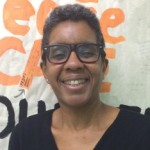It is hardly necessary to note that these are challenging times for history PhD programs. Continued tightening in the academic job market combined with an overall shift in priorities across the landscape of higher education have left a palpable imprint on all graduate programs in the humanities. In response, the UCLA history department has increased the attention paid to professional development of graduate students and formalized a number of already-existing activities. In 2013–14, the department piloted a two-quarter professional development seminar, centralizing all of these undertakings. The course aimed to help students sharpen the skills necessary to progress more effectively through the PhD program and, more broadly, to explore the multiple career paths for which their training prepares them.
Seminar meetings focused on a variety of topics, including the preparation of effective professional correspondence (CVs, cover letters, fellowship applications, etc.), the maintenance of professional relationships (both inside and outside the university), and the management of research projects. Other meetings invited students to draw on campus resources to facilitate their progress through the PhD program and, later, to contemplate their post-graduation career options. Students learned how to create accounts and use the UCLA Career Center’s online career services portal to investigate a wide variety of internship and job opportunities.
Departmental alumni played an important role in the inaugural launch of the professional development seminar. Several participants not currently teaching at four-year colleges or universities returned to campus to discuss their career paths. Among them were two recent graduates, one with a tenure-track position at a southern California community college; the other now teaching at a Los Angeles-area independent school. Both spoke compellingly of their job satisfaction and of the pleasure they take in working with populations rather different from those they taught while TAs at UCLA. They also talked—and took questions from seminar members—about how they arrived at their career choices and outlined the steps they had taken to secure their current positions. These sessions were among the most popular of the seminar, drawing non-enrolled participants and students from all stages of the graduate program. They were characterized by spirited discussion and appear to have stimulated interest in careers outside conventional four-year institutions.
The professional development seminar continued into the current academic year, benefitting from the addition of a graduate career officer (GCO) to the department’s staff thanks to funding from the AHA Career Diversity project. Still the central course for preparing students to succeed in and beyond the PhD program, the seminar no longer shoulders the burden of trying to encompass every aspect of professional development. Various programs and activities offered by the GCO intersect with the aims and topics of the seminar. Students receive complementary information and training from the two endeavors, profiting from the variety in delivery, content, and modes of engagement. The combination of a formal, two-quarter annual seminar and a dedicated resource person in the department has reinforced the importance of professional development. The two-pronged approach allows for more versatility in offerings and more access for students to guided professionalization. Looking forward, new and continuing students can count on having the integrated support and resources they need for career exploration and preparation.
This post is one of a series on AHA’s Career Diversity for Historians initiative. The author, Muriel C. McClendon, is associate professor and vice chair for graduate affairs of history at UCLA. Her research is on urban culture and religion in early-modern England, and, in addition to the professional development seminar, she teaches courses on early-modern European history.
This post first appeared on AHA Today.
This work is licensed under a Creative Commons Attribution-NonCommercial-NoDerivatives 4.0 International License. Attribution must provide author name, article title, Perspectives on History, date of publication, and a link to this page. This license applies only to the article, not to text or images used here by permission.
